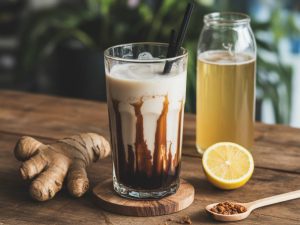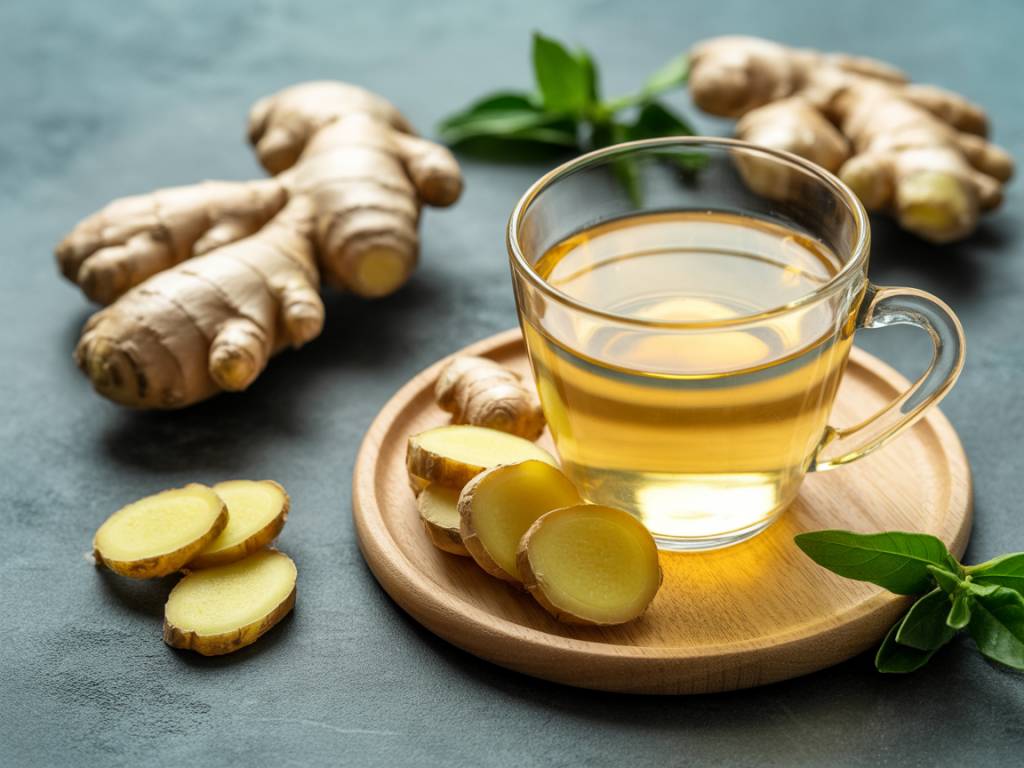The Resurgence of Ginger in Modern Nutrition Science
Ginger isn’t just a spicy root your grandmother swore by — it’s a scientifically supported powerhouse gaining credibility in today’s health and nutrition circles. From traditional Chinese medicine to cold-pressed juices in hip cafés, ginger is seeing a renaissance. But beyond folklore and marketing buzz, what does the latest research actually say about its benefits?
As someone who’s spent the last five years diving into beverage formulation and nutritional science, I’ve been closely tracking the evolving data on ginger. Here’s a deep, structured look at what we now know — and where we need more clarity — on this pungent root.
Gingerol: The Star Active Compound
At the heart of ginger’s health properties lies gingerol, a bioactive compound responsible for both the root’s signature heat and a good portion of its medicinal effects. Related to capsaicin (in chili peppers) and piperine (in black pepper), gingerol has been the focus of numerous peer-reviewed studies in the past five years.
It acts as a potent antioxidant and anti-inflammatory agent. In clinical trials, gingerol has shown the ability to reduce inflammatory markers like C-reactive protein (CRP) and TNF-alpha. These are big players in chronic disease development, from cardiovascular problems to diabetes.
To put it simply: ginger doesn’t just spice up your tea — it enters your bloodstream and potentially helps your cells combat stress and inflammation.
Digestive System: From Relief to Regulation
One of the most well-established uses of ginger is for gastrointestinal health. A meta-review published in Food Science & Nutrition in 2023 analyzed 16 randomized trials and concluded that ginger supplementation consistently improved symptoms of nausea, bloating, and gastric emptying — particularly in pregnancy and chemotherapy-related contexts.
For example, a 2022 trial at the University of Sydney had participants with functional dyspepsia consume 1.5 grams of ginger powder daily, resulting in a 57% improvement in gastric emptying compared to placebo. The ginger group also reported reduced bloating and improved postprandial comfort.
Ginger seems to work by stimulating the vagus nerve and modulating serotonin receptors in the gut — proof that this ancient ingredient operates at a nervously modern level.
Blood Sugar and Metabolic Health
This is where things get especially interesting.
Ginger has increasingly been studied for its effects on blood glucose regulation. A 2021 study in the journal Phytotherapy Research found that supplementation with 2 grams of ginger powder over 12 weeks significantly reduced fasting blood glucose and HbA1c in type 2 diabetic patients.
The suspected mechanisms?
- Enhanced glucose uptake in muscle cells via activation of the AMPK pathway.
- Improvements in insulin sensitivity.
- Delayed gastric emptying, moderating glucose spikes post-meal.
While this doesn’t give ginger the same status as metformin, it does suggest a real supporting role in holistic metabolic management — especially through food-based approaches.
Anti-Inflammatory Support for Athletes and the Elderly
Muscle soreness, joint pain, and fatigue are often treated pharmaceutically, but ginger might offer a more natural solution with fewer side effects.
A 2024 double-blind study conducted in the Netherlands showed that amateur runners who consumed a ginger-infused sports beverage daily (500 ml containing 500 mg of ginger extract) reported a 20% faster recovery time and reduced creatine kinase levels (a marker of muscle damage) compared to the control group.
This is already prompting some performance beverage brands to experiment with ginger-infused hydration formulas — a trend likely to rise in the next two years.
Immune System and Antimicrobial Activity
A flavorful powerhouse in your immune-boosting beverage isn’t just trendy — it’s also scientifically plausible.
Research in journals like Molecules (2022) has demonstrated gingerol’s antimicrobial effects against a range of pathogens, including Staphylococcus aureus and Escherichia coli. Additionally, ginger extracts were shown to interrupt several stages of viral replication in vitro when tested against rhinovirus and influenza strains.
Does this mean ginger prevents the flu? Not quite. But it may play a supporting role in your immune strategy — especially when paired with citrus (vitamin C) and zinc — a combination now common in many cold-pressed immunity shots.
Cognitive Support: The New Frontier?
The neuroprotective effects of ginger are now under active investigation. Early data is promising.
A Thai study published in Evidence-Based Complementary and Alternative Medicine (2022) observed improved working memory and attention span in middle-aged women who took a standardised ginger extract over 8 weeks. Functional MRI scans even showed increased activity in the dorsolateral prefrontal cortex — your brain’s executive control center.
Researchers hypothesize that this is largely due to ginger’s anti-inflammatory and antioxidant actions in brain tissue, along with enhanced acetylcholine availability (a key neurotransmitter for learning and memory).
For culinary minds or mixologists seeking focus during those long recipe testing sessions: ginger tea or ginger-infused water might be a worthy desk companion.
How Much Ginger Is Enough?
Dosing matters. According to most clinical studies, effective daily amounts of ginger range from:
- 1 to 3 grams of dried ginger powder
- 10 to 30 grams of fresh root
- 0.5 to 1.5 grams of standardized extract (e.g., 5% gingerol)
It’s worth noting that higher doses (above 4 grams/day) can cause gastric irritation, especially in sensitive individuals. Stick to moderate, consistent intake rather than megadosing — your taste buds and digestion will thank you.
Creative Ways to Integrate Ginger into Your Daily Diet
Let’s be honest. For all its benefits, no one wants to eat spoonfuls of ginger powder daily. Fortunately, it plays nice with a wide range of culinary and mixological applications:
- Morning immunity shots: Blend ginger, lemon, cayenne, and turmeric in a juicer — 30 ml is enough to feel the zing.
- Savory meals: Grate fresh ginger into stir-fries, marinades, or soups — heat amplifies absorption of certain volatiles.
- Smoothies: Add 1 cm of ginger root to your banana-spinach blend for an anti-inflammatory twist.
- Mocktails and cocktails: Combine ginger syrup with soda water, lime, and mint for a zero-proof refresher — or use it in a Mezcal Mule for something more spirited.
- Fermented beverages: Homemade ginger beer retains some active enzymes and can be tweaked for sugar control.
From my own kitchen tests, infusing fresh ginger slices in water overnight with cucumber and basil creates a hydrating beverage that’s ideal after sport, or during long writing sessions (like this one).
Key Takeaways from the Research
To synthesize the current findings and help you apply them today:
- Ginger supports digestion, fights inflammation, and may regulate blood sugar.
- New studies suggest cognitive and immune-boosting roles worth watching.
- Clinical trials typically use 1–3 grams/day of dried ginger or extract — more is not necessarily better.
- It’s most absorbable when consumed with small amounts of fat or in heated form.
- The best results come from consistent dietary inclusion, not sporadic doses.
Food and beverage innovation thrives at the intersection of tradition and data. Ginger stands as a perfect example: beloved for centuries, and now validated by modern research. Whether stirred into an immune tonic or shaken into a bold cocktail, this root has earned a permanent place in both your spice rack and your health toolkit.
Curious to see how ginger synergizes with other botanicals? Stay tuned — I’m deep into testing a new series of infusions using adaptogens and spice extracts. The results might surprise you.


















